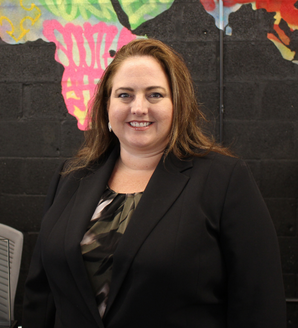Originally posted on February 7, 2023
You Can Still Get in Compliance with Your U.S. Taxes
The United States and Eritrea, a country in Africa, are the only two remaining countries to tax based on citizenship. This means if you were born in the U.S. or acquired citizenship, you need to file taxes reporting your worldwide income and foreign financial assets. In addition, the United States also requires persons meeting either the green card test or the substantial presence test to report worldwide income and foreign financial accounts.
The United States has one of the most complex and robust tax reporting systems, especially for individuals, resulting in substantial disclosure for many people with cross-border investments, homes, and even family members. As a result of this requirement, it is not uncommon for Americans living outside of the United States to be unaware of their filing requirements or even for U.S. tax residents and citizens to fail to disclose all the required information.
Over the years the IRS has initiated various tax compliance programs to help citizens and tax residents become compliant with their tax filings. Although many of these programs have since expired there are still options for U.S. citizens and residents to become compliant and minimize the potential tax penalties. There are currently two programs in effect, the Streamlined Filing Compliance Program (“Streamlined Procedures”) and the Voluntary Disclosure Practice (“VDP”) and it is crucial to understand the difference between the two programs.
Streamlined Procedure
For the Streamlined Procedure, there are two versions of this program depending on if you live inside or outside the United States. The Streamlined Foreign Offshore Procedures (“SFOP”) is for qualifying persons that do not have an abode in the United States and have been outside of the U.S. for 330 full days in any one or more of the most recent three years for which the U.S. tax return date has passed. No penalty will be assessed for participants submitting under the SFOP. The Streamlined Domestic Offshore Procedure (“SDOP”) is for persons that have filed a U.S. income tax return for the past 3 years, failed to report gross income from a foreign financial asset, and either have a U.S. abode or were not outside the U.S. for 330 full days. A penalty of 5% will be assessed on the highest aggregate value of the foreign financial assets included in the submission, unless they were properly reported and income was included on the prior tax returns.
Both the SFOP and the SDOP require the filing or amending of the past 3 years of tax returns and 6 years of the Report of Foreign Bank and Financial Accounts (“FBAR”) along with a non-willful statement. In order to qualify under the Streamlined Procedure, you must certify that you were non-willful in regard to the failure to file. Although the IRS has not defined what will be considered willful and non-willful there have been many court cases that help to clarify the matter.
Various facts and circumstances are considered when the IRS reviews the non-willful statement attached to the submission and the prior tax filings, if any, along with the current compliance submission. For example, if a person has previously filed their income tax returns but failed to file the FBARs, the IRS may review schedule B on the personal income tax return to see if the person stated they did or did not have a foreign account. On the schedule B at the bottom there is a section titled Part III Foreign Accounts and Trusts, which asks if at any time during the tax year the filer had a financial interest or signature authority over a financial account and if so whether they are required to file the FBAR and for which countries if so required.
A recent court case discusses the IRS review of Schedule B Part III of the return for a taxpayer that entered the above program and when questioned as to why she allowed her accountant to answer “no” to the question if she had such foreign accounts, she stated “it was none of his business”. While most taxpayers may not even notice this section of the return, it is important to note the IRS does notice it and accuracy as well as disclosure are important.
Voluntary Disclosure Practice
If willfulness is a concern based on your specific situation, then the other option to become compliant is the Voluntary Disclosure Practice (VDP) submission. In order to participate in the VDP a preclearance request and application must be submitted. If you are approved for this program, then an examiner will be assigned to your file and will work closely with you to obtain all the required information and documents.
How Abitos Can Help
If you’re concerned that you have failed to file all required forms, failed to file FBAR reports (related to your foreign bank account), or just want a qualified professional to review your matter, contact your AbitOs Advisor.
AbitOs specializes in the unique tax needs of high net-worth individuals with international lifestyles, LATAM, Canadian, and other non-US entities doing business in the U.S., as well as U.S. entities doing business in those countries and across the globe. If you would like to benefit from our expertise in these areas or if you have further questions on this Alert, do not hesitate to contact us.




